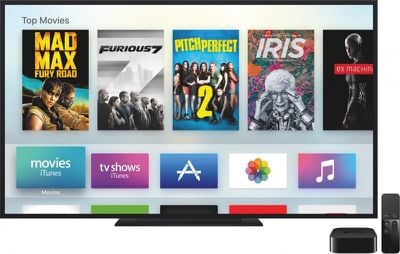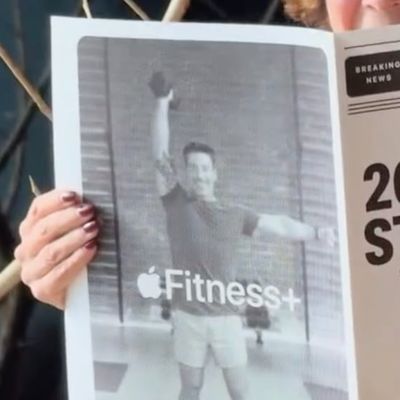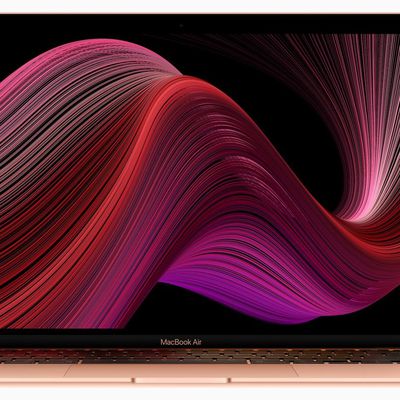FCC Proposal Aims to Make Subscription TV Available on Any Set-Top Box
United States Federal Communications Commission chairman Tom Wheeler introduced a proposal [PDF] this afternoon that would de-couple cable subscriptions from cable set-top boxes. Under the proposal, cable and satellite subscribers would be able to access and watch cable content on any set-top box of their choosing, including the Apple TV, rather than being limited to the set-top box provided by the cable company.
While allowing customers to access the full content provided with a cable subscription through the Apple TV is not quite the cord-cutting solution Apple has been aiming for, it is a step towards a more open relationship between technology companies and cable companies. Such a system would not give Apple control over content, but it would allow Apple to build an interface for that content.

The new rules would create a framework for providing device manufacturers, software developers and others the information they need to introduce innovative new technologies, while at the same time maintaining strong security, copyright and consumer protections. Nothing in this proposal changes a company's ability to package and price its programming to its subscribers, or requires consumers to purchase new boxes.
As The Verge points out, the FCC faces a tough battle attempting to get this proposal passed and implemented due to resistance from cable companies who want to have control over content and how and where it's displayed.
A similar plan for the CableCard, which allows companies like TIVO to offer cable content, has largely failed because of its complexity and because many cable providers refused to make the process simple enough to be widely adopted. Cable companies are against the proposal because of the loss of control and the loss of the revenue from rented cable set-top boxes, and more than 40 telecommunications groups have already formed a coalition to oppose the FCC's plan.
Cable companies argue it would give technology companies unfair access to customer data and potentially disrupt deals that have been established for channel positioning, giving some programmers better spots in the lineup for higher payments.
Having continually failed to reach deals with content providers and cable companies, Apple has settled on focusing on its tvOS operating system and the App Store available on the fourth-generation Apple TV. The tvOS App Store model allows for cable companies to create apps and deliver cable content to consumers on the Apple TV, but it's a fragmented system that's less than ideal because it still doesn't give Apple full control over the interface. The FCC's proposal has the potential to greatly improve the cable watching experience on the Apple TV, at least for cable subscribers.
Popular Stories
Apple is not expected to release a standard iPhone 18 model this year, according to a growing number of reports that suggest the company is planning a significant change to its long-standing annual iPhone launch cycle.
Despite the immense success of the iPhone 17 in 2025, the iPhone 18 is not expected to arrive until the spring of 2027, leaving the iPhone 17 in the lineup as the latest...
Apple's restrained artificial intelligence strategy may pay off in 2026 amid the arrival of a revamped Siri and concerns around the AI market "bubble" bursting, The Information argues.
The speculative report notes that Apple has taken a restrained approach with AI innovations compared with peers such as OpenAI, Google, and Meta, which are investing hundreds of billions of dollars in data...
The Apple Fitness+ Instagram account today teased that the service has "big plans" for 2026. In a video, several Apple Fitness+ trainers are shown holding up newspapers with headlines related to Apple Fitness+.
What's Apple Fitness+ Planning for the New Year?
Something Big is Coming to Apple Fitness+
The Countdown Begins. Apple Fitness+ 2026 is Almost Here
2026 Plans Still Under ...
iPhone 17 Pro and Pro Max owners are having trouble with the speakers of their devices, and have complained about a static or hissing noise that occurs when the iPhone is charging.
There are multiple discussions about the issue on Reddit, the MacRumors forums, and Apple's Support Community, where affected users say there is a noticeable static noise "like an old radio." Some people report...
Apple is rumored to be introducing a foldable iPhone in September 2026, and since it will bring the biggest form factor change since the iPhone was introduced in 2007, curiosity about the design is high. A 3D designer created an iPhone Fold design based on rumors, and we printed it out to see how it compares to Apple's current iPhones.
Subscribe to the MacRumors YouTube channel for more ...
Apple hasn't updated the Apple TV 4K since 2022, and 2025 was supposed to be the year that we got a refresh. There were rumors suggesting Apple would release the new Apple TV before the end of 2025, but it looks like that's not going to happen now.
Subscribe to the MacRumors YouTube channel for more videos.
Bloomberg's Mark Gurman said several times across 2024 and 2025 that Apple would...
Apple hasn't updated the Mac Pro since 2023, and according to recent rumors, there's no update coming in the near future. In fact, Apple might be finished with the Mac Pro.
Bloomberg recently said that the Mac Pro is "on the back burner" and has been "largely written off" by Apple. Apple apparently views the more compact Mac Studio as the ideal high-end pro-level desktop, and it has almost...
Apple today added the final 13-inch MacBook Air powered by Intel processors, the Apple Watch Series 5, and additional products to its vintage products list. The iPhone 11 Pro was also added to the list after the iPhone 11 Pro Max was added back in September.
The full list of products added to Apple's vintage and obsolete list today:
MacBook Air (Retina, 13-inch, 2020)
iPhone 8 Plus 128GB ...
























